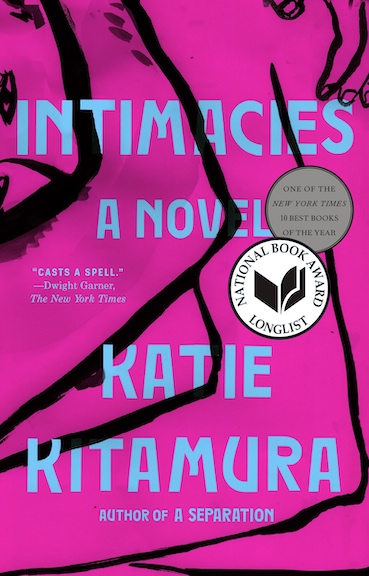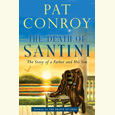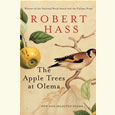Lambs to Slaughter
Bret Anthony Johnston’s We Burn Daylight sets doomed teenage love against religious conflagration
In the acknowledgments to his latest novel, Bret Anthony Johnston insists: “We Burn Daylight is not about David Koresh.” But this novel’s unnerving religious leader — a predatory scammer named Perry who insists on being called the Lamb — and the fate of his high-control commune closely resemble Koresh and the 1993 Branch Davidian FBI standoff in Waco, Texas.
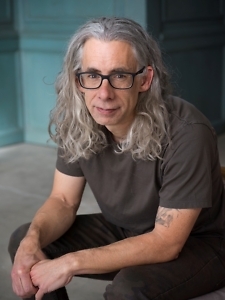
Add to this indelible flashpoint of American culture and politics a familiar story of literature: Shakespeare’s tragedy of doomed teen lovers, Romeo and Juliet. We Burn Daylight places its own pair of teens — the daughter of a faithful follower of the Lamb and the son of the local sheriff — centerstage in a firestorm of religious conflict.
By all rights, this conceit really shouldn’t work. Consider the pitfalls of cliché built into this cast: cult leaders, star-crossed teenagers. But Johnston outfoxes cliché and imbues all of his characters with their own perspectives on these unfolding events. Each perspective crackles with convincing specificity, powered by personal histories and considered observations.
A Texas native himself, Johnston writes with lived-in detail about the people and landscapes of his setting. As in his previous novel, 2014’s Remember Me Like This, Johnston creates an environment in which his characters seamlessly move and interact, sometimes failing to connect directly but still communicating something deeper about the thematic landscape.
In We Burn Daylight, these everyday failures to connect are like small bits of touch-paper that collect around the central conflict. We know from the start that, at some point, every one of them will ignite.
Throughout short chapters that alternate perspectives between the teenagers, Jaye and Roy, Johnston intersperses brief sections of interview transcript from a present-day podcast looking back on the tragedy. Various figures give their accounts — grieving family members, remorseful law enforcement officers, defiant commune members who survived the tragedy.
These interludes highlight the strange specificity of having lived through well-known events. The podcast device could easily go wrong, seeming forced or artificial, but these sections work because each one is narrowed to sharp focus, respecting the long-term costs of living with personal memories that may not square with popular historical narratives.
One imprisoned follower snaps, challenging her interviewer: “You don’t even know what to ask. Wouldn’t know the right questions if they danced up and kissed you.”
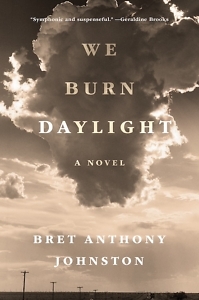 Any story that overtly centers Romeo and Juliet lives or dies by how much we care about its teenage characters. When we meet Jaye, she comes across as clever and self-assured, more interested in adventure than religion. Growing up in California, Jaye meets Perry at a pivotal moment of his development, just before the various pieces of his dangerous persona come together. He wastes no time charming Jaye’s mother, busting up her family home and transplanting Jaye and her mother into the hot, dusty outskirts of Waco.
Any story that overtly centers Romeo and Juliet lives or dies by how much we care about its teenage characters. When we meet Jaye, she comes across as clever and self-assured, more interested in adventure than religion. Growing up in California, Jaye meets Perry at a pivotal moment of his development, just before the various pieces of his dangerous persona come together. He wastes no time charming Jaye’s mother, busting up her family home and transplanting Jaye and her mother into the hot, dusty outskirts of Waco.
Roy, on the other hand, has grown up as part the town’s social fabric. Like Jaye, he’s observant. He shares warm humor with his mother and misses his brother, who’s deployed overseas. He also senses growing trouble for his father, the town sheriff. Conflicting views on Perry’s commune — their agenda, the nature of Perry’s relationships with his followers, the extent of their stockpiled weaponry — have begun to escalate.
Johnston finds a way to present the burgeoning teen romance in a way that reflects the thematic role the pair plays in a larger unfolding tragedy, while also grounding their relationship in the specifics of time and place. Jaye and Roy feel honestly rendered as individuals and as teenagers. We sense from the start which direction their fates will pull them, adding tension to each choice they make.
“I squeezed her fingers, which made her squeeze mine, and soon it turned into a game lacking rules or points,” Roy tells us. “We were just children. Keep that in mind before you judge us.”
Blending Shakespearian turns of fate with fraught events of history that still feed religious and political narratives today, We Burn Daylight accomplishes an impressive feat. By placing the personal costs of large-scale events in the foreground, Johnston provides a contemporary, yet timeless exploration of moments when rhetorical invocations of chaos — both personal and collective — turn real and unstoppable, burning up everyone they touch.

Emily Choate is the fiction editor of Peauxdunque Review and holds an M.F.A. from Sarah Lawrence College. Her fiction and essays have appeared in Mississippi Review, storySouth, Shenandoah, The Florida Review, Rappahannock Review, Atticus Review, Tupelo Quarterly, and elsewhere. She lives near Nashville, where she’s working on a novel.
